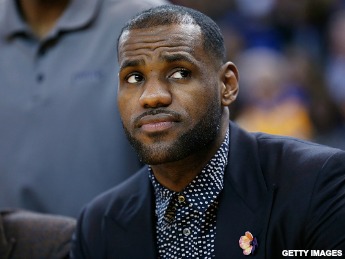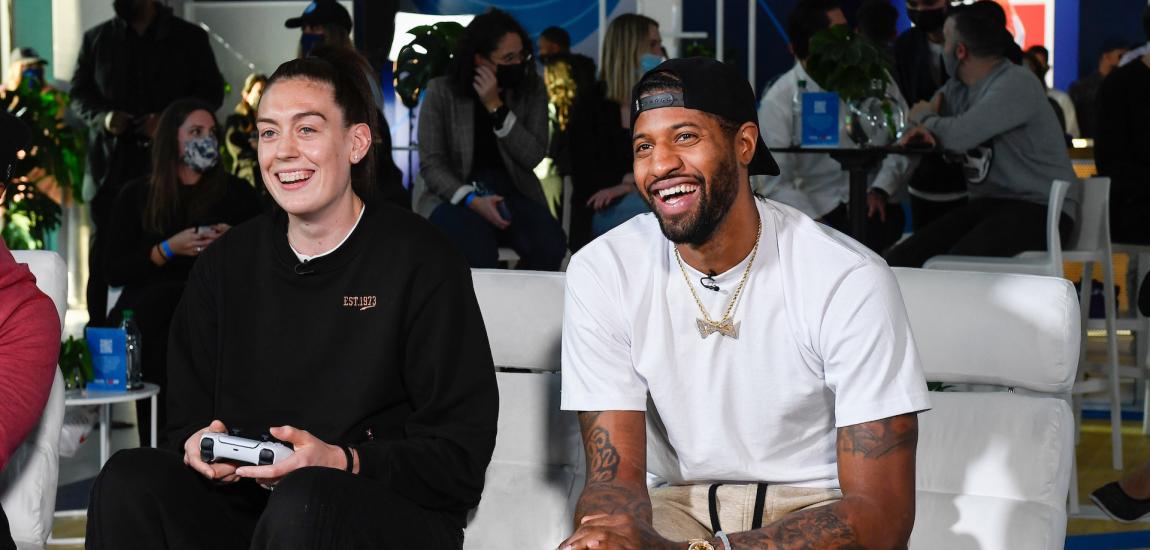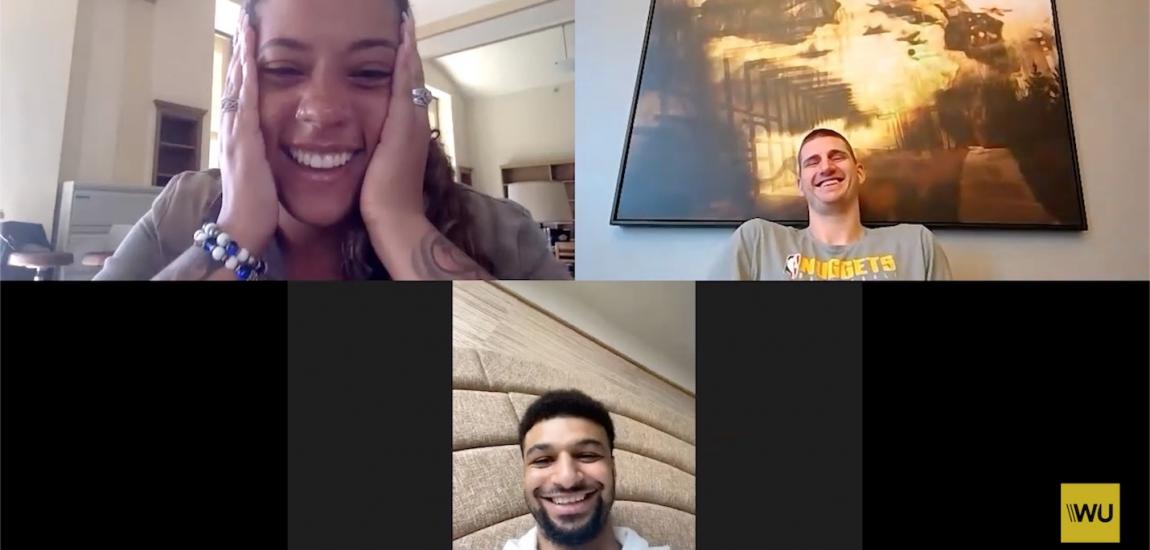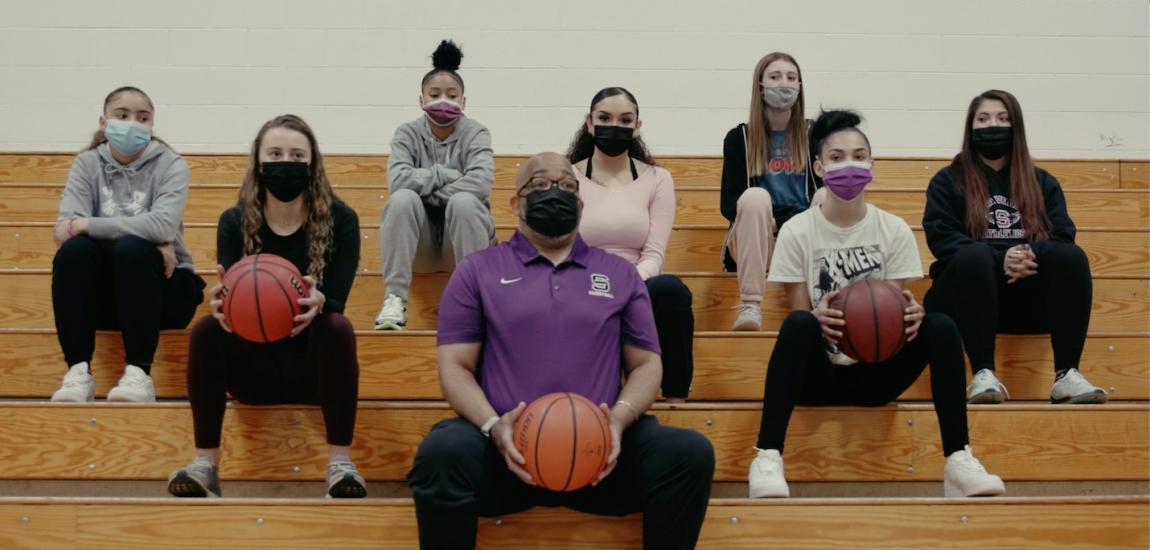LeBron James has proven himself. He has five NBA Finals appearances, two rings and four Most Valuable Player trophies. Short of the occasional stretch of passive play or an ill-timed muscle cramp during Game 1 of the NBA Finals, he's met every reasonable expectation his critics have levied (the muscle cramp complaint, for what it's worth, is not among them).
Unlike James' first stint in Cleveland and his pre-championship days with the Miami Heat, during which examinations of his team's postseason failings started with his own play, the second act of his Cavaliers career is much different. For one, James is much better now than he was five years ago with Cleveland. He's more accomplished. We've seen him elevate his teammates to better play and convince superstars to accept a secondary role. We've also seen the limits of what one man can do as his teammates crumbled around him during last summer's NBA Finals blowout.
In the complicated formula that defines the 2014-15 Cleveland Cavaliers, James is the only known variable -- and that assumes he will return to full health, which at the moment, and for the first time in his career, is not quite guaranteed. Cleveland's problems on the court were obvious before James went down: Chemistry issues, poor bench depth, star pieces that weren't fitting properly and rumors that the players weren't embracing their rookie coach.
No one expected the Cavs to magically play better by subtracting the world's best player from the equation. But in the nearly two weeks since LeBron has played basketball, even more alarming trends have emerged. For one, Cleveland is freefalling: A five-game losing stretch has dropped the club to 19-19 and sixth place in the East. The Milwaukee Bucks are half a game better. In their past nine games, the Cavs have lost eight times -- five by 16 points or more, along with a three-point loss to the spunky Philadelphia 76ers, who had entered that matchup a dazzling 4-28.

After Sunday night's 19-point loss to Sacramento, Cleveland now has a negative point differential on the season, meaning it has been outscored by its opponents over the course of 38 games. This is far from the resume of a championship contender, and we're just one week from the season's midway point. In fact, Elias Sports Bureau has reported that no NBA champion started a season as poorly as 19-19.
The gut reaction from a lot of fans and observers seems to be that Cleveland will be fine. The playoffs are three months away, Cleveland can't possibly play its way out of the playoffs, and LeBron is still LeBron. All three points are factually true. The big question is whether any of these things matter: If time can heal what ails Cleveland, if playoff positioning is erroneous, if a healthy LeBron is the antidote.
As the season wears on, there is evidence against all three assertions.
Time is important, true, and particularly for a team assembled over the offseason. LeBron and Kevin Love are new, as are rotation players James Jones, Mike Miller and Shawn Marion. J.R. Smith, Iman Shumpert and Timofey Mozgov were all traded for within the past week, so their integration remains a work-in-progress.
The fact that James, Love and Kyrie Irving are struggling to strike an optimal balance is not surprising. All three come in having spent their entire NBA careers as alpha dogs. Love and Irving have to adjust to secondary roles just as Dwyane Wade and Chris Bosh did.
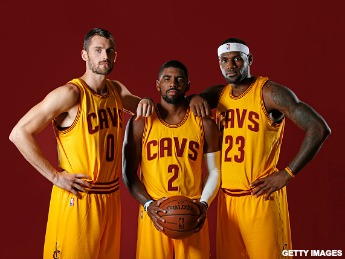
But there are important differences, particularly where Kevin Love is concerned. The power forward is not a fast or athletic big man, which makes him more of a liability on defense. He is an offensive stalwart on a team that has a lot of firepower, which makes Cleveland potent on offense but porous on defense -- and this was before defensive-minded center Anderson Varejao tore his Achilles, ending his season.
Irving is also a weak man defender. Part of Cleveland's motivation in trading for Shumpert -- after unloading Dion Waiters to Cleveland -- was to bolster its defense with a guard that could light James' heavy workload. Asking LeBron to be the main man on both offense and defense is simply too demanding. Michael Jordan was a world-class defender, but he needed Scottie Pippen's defensive prowess to give him a break.
It's no surprise, then that Cleveland's defense ranks 18th in the league, holding opponents to just shy of 100 points per game. What is a bit of a shocker: the offense is barely better, holding strong at 17th out of 30 teams. That figure is weighed down some by the LeBron-less streak: eight of the past nine games have seen the Cavs fail to surpass 95 points, and on four occasions they didn't even hit 90. For a team whose preseason appearance was that of an offensive juggernaut, the season's body of work has been very underwhelming.
Now, LeBron looks to make his return this week with a very different team -- three new teammates and a lowly losing streak. Despite rumors that James and other players are struggling to co-exist with head coach David Blatt, management says it is all in with their new hire. You might think the pressure is on James to spark a revival with this team, and to some degree there is -- that's the expectation of any athlete regarded as the greatest in his sport.
But in other ways, James is the most insulated from the consequences of this season's failure. Fans should remember that his two-year contract includes a one-year player option, making him eligible to jump ship after this season. That clause was installed for a reason: James doesn't want to be committed to a bad situation. He was coming to a moribund franchise that had roster holes to fill and a new coach to hire. He didn't want to lose multiple years of his playing prime to a second failed go-around in Cleveland.
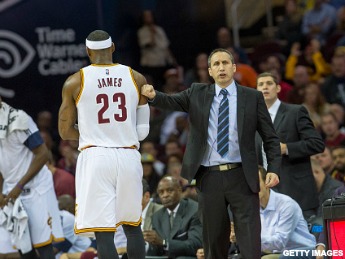
It's James' player option, in fact, that amplifies the pressure on everyone else. The incentive for instant winning is that success can avoid a potential doomsday scenario next summer. If James were to exercise his player option out of franchise, Love would likely do the same. The Cavs could lose both and be left facing a wasteland of a future.
Outside of Irving, who is locked in until 2019, Cleveland has almost nothing in the way of prospects. Its current roster features an average age of 28.8, tied for third-worst in the NBA, according to RealGM. It traded No. 1 overall pick Andrew Wiggins -- and 2013 No. 1 pick Anthony Bennett -- to Minnesota for Kevin Love. It gave up two low first-round picks to Denver for Mozgov, and last fall it traded what will likely become Sacramento's first-round pick this summer in exchange for Luol Deng, who spend three whole months on a non-playoff team.
Chicago also has the option of swapping first-round picks this summer, and it's looking like that will happen. If the draft were today, the Cavs would be giving away the 16th or 17th overall pick in exchange for the 24th.
This is a legitimate problem even if LeBron and Love do stay, because it holds the team back from bringing in young, productive talent at a low price. But if James and Love were to bolt for greener pastures -- Love to a larger market, James to a better competitive situation -- it would banish the Cleveland organization to a hopelessness far worse than the first time James took his talents elsewhere.
That said, a doomsday scenario is still unlikely, even if it's possible -- and more possible now than it was two months ago. The Cavs are still very likely to make the playoffs, their recent trades improve the roster, and the James-Love-Irving combo will continue to gel, even if it never truly clicks on both sides of the ball. James does provide an advantage no other NBA team can match, and the Cavs will be a threat to win any game involving its singular star.
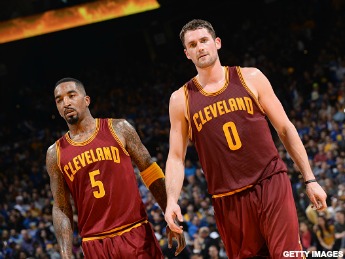
All of those prospects remain safe for the moment. The problem is that these will be of little value to LeBron. A man who wants to end his career in the conversation of greatest-of-all-time will not be content on a team that reaches the second round of the playoffs. He understands as well as everyone else the difference he makes to a roster, and how quickly he can turn a good team into a championship favorite. He wants to win rings in Cleveland, yes, but first and foremost, he wants to win rings.
That pressure is precisely why, with the exemption of recent front-office moves, the Cavs' recent results have been perplexing. Even with LeBron on the sideline, you would think the team would show some fight. Instead, it laid down and endured blowout after blowout. Embarrassing losses came, criticism descended, the top four seeds in the East broke away from the pack, and Cleveland's so-called "contending" roster wet the bed. Even if they turn things around now, the Cavs face the likelihood of playing the entire playoffs without home court advantage against younger, more athletic teams that have been polishing their game while Cleveland searches for its identity.
As if things those problems aren't big enough, Cleveland has few options to improve over the summer. Love will require a larger contract, and a low first-round pick isn't likely to yield an immediate rotation player. Even if James opts in -- and assuming J.R. Smith does the same -- the Cavs might not be able to afford either Shumpert or Tristan Thompson, and they might lose both.
Short of some inventive wheeling and dealing, the Cleveland Cavaliers don't have the assets or opportunities to make big leaps forward. Those moves were already made when James and Love were brought on board. Everyone's in it to win it now.
So far, the winning isn't coming. If that doesn't turn around fast, James could be out. He proved his loyalty to Cleveland when he came back this summer.
But let's not forget: He packed a parachute.

